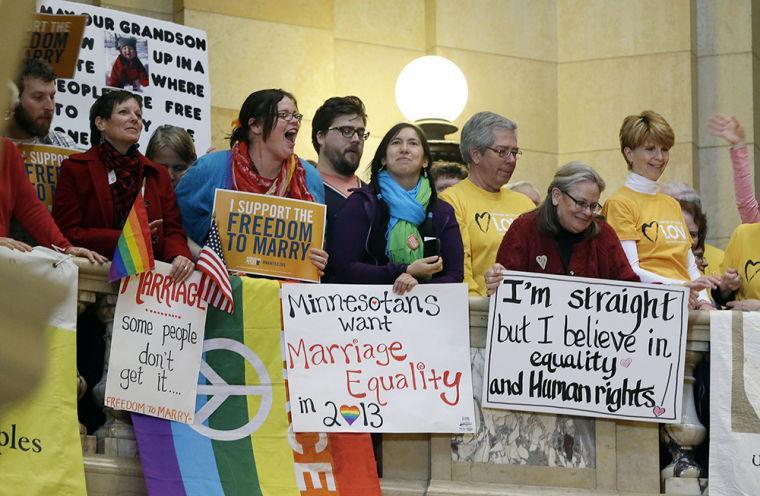The U.S. government needs to take its dirty little hands out of the marriage issue.
More than 80 Republicans, including Jon Huntsman and my personal hero Clint Eastwood, signed a letter to the Supreme Court in support of gay marriage last week.
While I appreciate this act of conservatives realizing we’re not quite right on the issue, I’m not convinced their answer is the solution to this problem.
America was founded with separation of church and state in mind, and both Congress and the Supreme Court have acted under that assumption for years.
When America revolted against the British, we formed our own country but took some of their traditions with us on the way out.
One of these was marriage.
Marriage is a religious ceremony instead of a government one, which, contrary to popular belief, means gay couples should be able to get married.
Hear me out, my fellow conservatives.
Because marriage is historically and culturally a church issue, it should be up to our country’s various religious institutions to decide who can be married.
When we allow government at any level to legislate marriage in any way, we’re breaking the wall between church and state.
This is something that cannot occur.
Here’s how it should work.
If Monty wants to get “married,” he needs to go to an established religious institution to see if it will marry Monty and his male or female partner.
These religious institutions — which aren’t saying “no” to prospective marriage candidates of any sexual preference, by the way — will then decide whether these people are good candidates for marriage under that religious institution’s laws and standards.
A quick side note: For those of you who think American religious institutions — particularly churches — would never marry gay couples, Google “gay marriage Episcopal Church.”
Now for the big change that might upset the guy on the other side of the page: anyone who wants government recognition of what is now called “marriage” should have to file for a “civil union.”
According to Merriam-Webster, the current definition of a civil union is “the legal status that ensures to same-sex couples specified rights and responsibilities of married couples.”
As President Obama would say, let me be clear.
Under this proposal, the definition of “civil union” would change. Because the government would no longer recognize “marriage,” marriage could not be used in the definition.
In fact, because “marriage-like rights and obligations” would no longer exist, couples — gay or straight and whether they were married in a religious setting aside — would have to apply for a civil union from the government before receiving the benefits married individuals currently do.
This would only apply to people who haven’t planned a wedding yet.
As far as the government is concerned, it should support strong families regardless of the couples’ sexualities.
Even if you could prove without a doubt that traditional marriage is a more ideal situation for child-rearing or anything else, that doesn’t mean gay marriages could not positively contribute to society. With roughly 50 percent of American marriages ending in divorce, the “traditional marriage” crew isn’t doing much to show its own societal value.
Marriage isn’t the only church issue the government has thrust its hands into, but it’s the most relevant at this time.
For true separation of church and state, we’ll need to discuss currency, tax benefits for religious groups and a host of other things.
But for now, solving marriage should be enough.
John Parker Ford is a 22-year-old mass communication senior from Alexandria.





